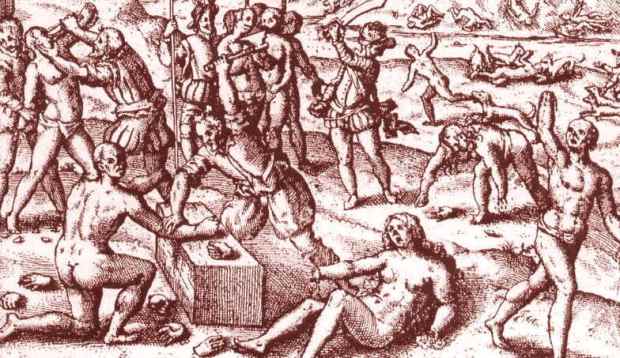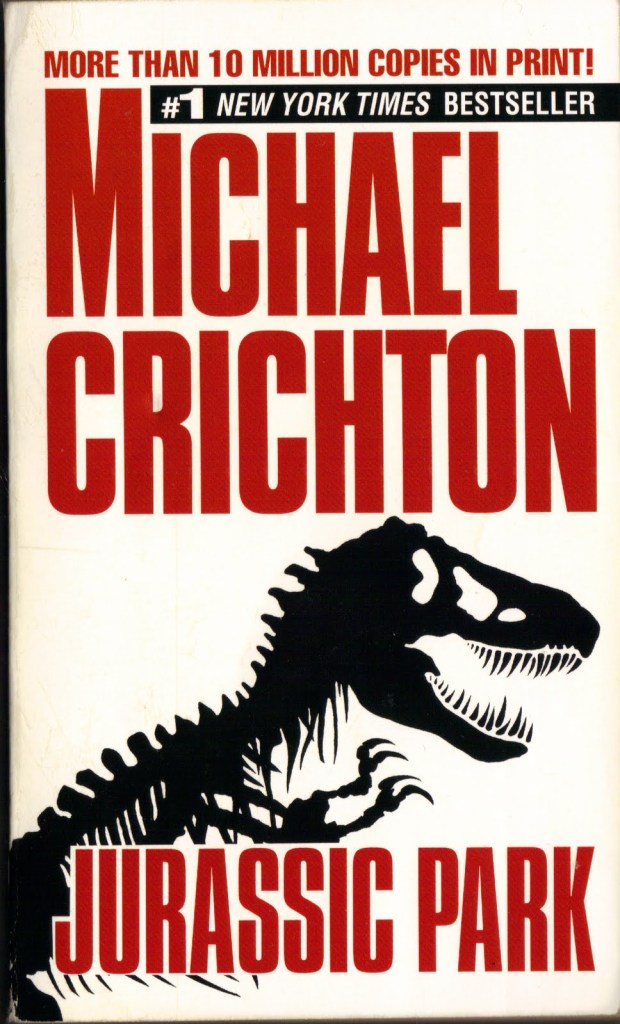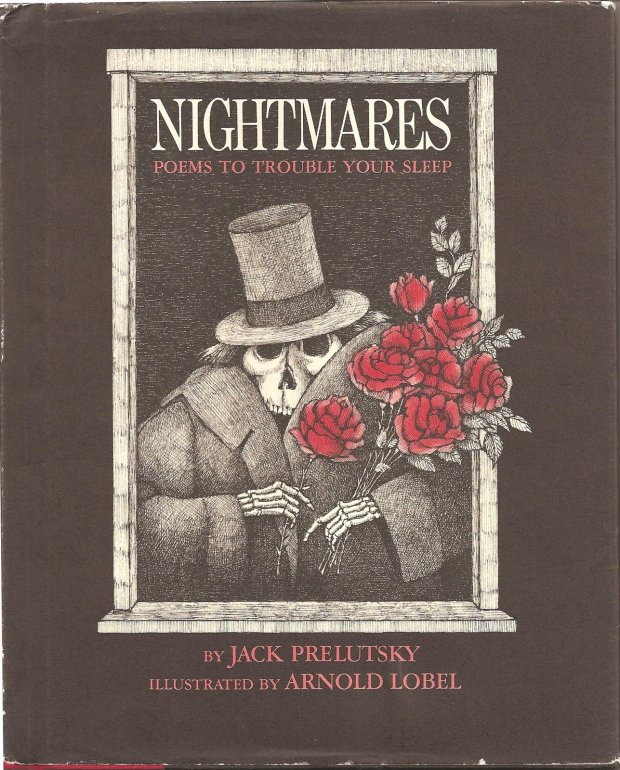Five Things We Need More of in Horror Literature Today
Written by: Matthew J. Barbour
Every genre needs new and exciting stories. Recently, we have seen an explosion in vampire and zombie literature; splatterpunk, once regarded as smut by some of the most diehard horror aficionados, has gone main stream; and nowadays, it seems everyone is influenced by H.P. Lovecraft and constructing their own cosmic horror tales. Truth be told, these trends are beginning to wear a little thin. Here are five things I hope to see more of in horror literature in the future.
The Ghost Story
A ghost is to horror like a knight is to fantasy. It isn’t required of the genre, but it is fundamental. The first thing that comes to mind when speaking of the horror is the ghost story. The roots of these stories intertwine with folk tales and legends as old as the earth itself. However, their height in popularity appears to have risen out of the Gothic Literature movement of the 18th and 19th centuries.
Through time, a plethora of great stories have been written. In the 20th century, many notable horror greats, such as Shirley Jackson, Ramsey Campbell, Stephen King, Richard Matheson, and Thomas Liggotti, have all tackled the traditional ghost story. However, few in the 21st century have tried. This is a shame given the importance of the ghost story to the genre as a whole and the flexibility of the ghost story to explore almost an unlimited number of themes and settings.
Recommended Ghost Story: The Haunting of Hill House by Shirley Jackson.
Real Monsters/Historical Horror
Horror does not need to have a supernatural edge. The real world is plenty scary. Some of the most horrific stories are based in reality. Think Psycho by Robert Bloch and The Girl Next Door by Jack Ketchum, but also of works by historians and journalists, such as The Devil in the White City by Erik Larson or Death in the City of Light by David King.
There is any number of serial killers or madmen whose stories are ripe for plunder. Why haven’t we seen a story on David Parker Ray, the toy box killer? Hell, the guy had a $100,000 torture chamber where the women were strapped to a table and forced to watch atrocities performed on them through a mirror mounted on the ceiling. How about a horror story set in the Khmer Rouge of Cambodia? They killed people by the thousands. The atrocities found in reality certainly have as much, if not more, horror as can be found in the minds of even the most imaginative writers.
Recommended Historical Horror: A Short Account of the Destruction of the Indies by Bartolome de las Casas.
Creature Features
In recent years, creature features have started to re-enter mainstream culture. Sometimes, like in Stephen King’s Cujo, they are the neighbor’s pet, but more often than not they are cloned or mutated super creatures with a hankering for human blood. These stories often get a bum rap as being campy and over-the-top, but they needn’t be and of course being a bit campy isn’t always a bad thing.
In the end, all a creature feature needs to do is show us the power and destructive wonder of Mother Nature, a force we can never fully control. Whether it is a 100 foot tall Godzilla or a microscopic flesh eating bacteria, creature features offer a sense of wonder that most other sub-genres of horror never obtain. Done right, the creature or creatures will be remembered for generations to come.
Recommended Creature Feature: Jurassic Park by Michael Crichton.
Poetry
Often time, horror is about raw emotion. No style of literature captures raw emotion better than poetry. It can be humorous or shocking. It can rhyme or hit hard. It can be accessible or avant-garde. Almost all early horror writers –Poe, Tennyson, and Yeats- wrote poetry. Even the father of modern horror, H. P. Lovecraft wrote poetry. Today, some 21st century authors still continue in this tradition, but not enough. It has become something of a lost art.
The true tragedy is poetry reaches out to audiences which may at first glance disregard horror. These include all subsets of the population from literary geeks to women to parents with small children. This last group is particularly important. Poetry has the potential to connect with kids in a way so few things can. It needn’t be scary. If done well, poetry can expose children to horror at an early age, thus instilling a life time of love and support for the genre.
Recommend Poetry: Nightmares: Poems to Trouble your Sleep by Jack Prelutsky.
Triumph of Good over Evil
In a world of anti-heroes and the perception that evil begets evil, where are all the good guys? Whatever happened to the happy ending? Whatever happened to the logic that if you do the right thing that somehow things will work out in the end? Are we really that nihilistic of a society?
Life is bleak. Horror taps into this realization. It feeds upon it, but in the end, shouldn’t we strive for something better? The triumph of good over evil is the notion that one can overcome life’s challenges. In the past, our hero or heroes would face off against great evil and insurmountable odds. They almost always pulled through. There would be a cost, but good would triumph over evil. It is a positive viewpoint. It is the thought that for as much evil as there is in the world, there will always be a Van Helsing (Dracula), Sheriff Brody (Jaws), or Elvis (Bubba Ho-Tep) to stop it.
Recommended Triumph of Good over Evil: It by Steven King.







Reblogged this on Matt Roberts and commented:
As I get ready to go over some edits and send in my second draft of my 13 Stories Til Halloween story (which is a ghost story, and that’s the only hint you’ll get!), check out HNR’s awesome write up of some things missing from modern horror. I couldn’t have written this better myself, and I couldn’t agree more with the five things listed here. We need them all! Where are they?
You’ll have to wait for 13 Stories to get my ghost tale, but for some awesome dark poetry, check out Shay Leigh’s Sins Within!
LikeLike
Thanks! I was unsure when making the list, a part of me felt like who am I to argue for where horror should go, but then again I felt like I read a ton of it. I know what has been overdone at this point. Every story and author in the article is highly recommended. Also while I say this is what we need more of, that isn’t to say people are not doing it. Hunter Shea for example appears to have really picked up on the concept of creature feature. Thanks again for your support.
LikeLike
Oh sure, and I get what you were saying. While those things you listed ARE being done, they’re getting overshadowed by the billionth zombie or vampire book. It’s understandable that those books are getting the spotlight, people are buying them up, and unfortunately those of us who want to read that stuff you listed are the minority of horror fans, apparently. I’ll take a good ghost story any day. I bitch all the time that there aren’t enough creatures from black lagoons anymore. Thanks again for this list!
LikeLike
Brilliant list and points. Totally agree 🙂
LikeLike
Really like your list. You can’t beat a good ghost story. One small correction, I think: did you mean Thomas Ligotti rather than Paul?
LikeLike
Uff that is a typo… yes I mean Thomas. A good story by him in the Bungalow House. Editor Matt if you are reading this can you change that horrible oversight.
LikeLike
lol when it rains it pours. Nobody caught this yes but his last name is misspelled too. What happened there?! uff… I apologize both to the author and his fans. My wife didn’t catch it either.
LikeLike
I love ghost stories and glad you mentioned them. For classics, I especially like The Ensouled Violin by Helena Petrovna Blavatsky, The Dream Woman by Wilkie Collins. Virginia Woolf wrote “A Haunted House” which is not scary but very ghostly!
LikeLike
Great list. I also love a great ghost story and fully agree with the lack of happy endings. For me that’s why I read through to the end…to see good triumph over evil as you say.
LikeLike
The only thing I hate about ghost stories is they all start out with, “We moved into our new house.” If anyone is writing a ghost story, please come up with a better set up than that. My story, “The Suitcase” (From Beyond The Grave anthology – Grinning Skull Press) involves a haunted stretch of highway.
LikeLike
That is a fair criticism, but not all ghost stories involve houses. It would be nice to see more thinking outside the box in that realm. Also sometimes the we moved into a new house is a good thing if told from a new perspective.
LikeLiked by 1 person
Great article, Matt. Some very fine points made.
LikeLike
I should fess up as much as I say we do not need more zombie literature. I just got a story called Project Z accepted to the Zombies in Japan anthology. So I am guilty as sin.
LikeLike
An excellent article Matthew …Love the whole idea of this. I write and enjoy poetry, of a number of them are horror themed. The Ghost story will always remain a number one in my reading desire…and I totally agree with the good winning over at the end …sometimes in this real world full of human monsters we all need a break from the dismal reality of it…the good Needs to be the one who succeeds now and again. Really enjoyed this…just me..Vitina Molgaard
LikeLike
I enjoyed this article and mostly agree with you on what we need to see more of. However, as a writer, I have to weigh in on one point: the happy endings thing. When I’m writing a story, I usually have an idea of where things are going, but sometimes the characters hijack the story and start doing thing I don’t expect. Sometimes, the whole thing shifts and it goes somewhere else. Occasionally, this is a good thing for the characters and we achieve happy ending status. Sometimes, the opposite happens and thins get very dark and ugly. I have found that if I try to push the story somewhere it doesn’t want to go, it falls apart. So, yeah. Sometimes, like real life, fiction ends badly. Sometimes, it has to. That’s my two cents. Now, I’m off to write a creature feature piece.
– Ken MacGregor
LikeLiked by 1 person
While I agree not all stories must have a happy ending. I feel like right now there is an over abundance of those stories. The story goes where the story is going, however hijacking what would otherwise be a happy ending with a really off the wall twist just to insure it is not happily ever after seems a bit extreme. Some stories do exactly that.
LikeLike
I think forcing an unhappy ending is just as big a crime as the opposite. It’s a disservice to the reader to force an ending that doesn’t fit. Not all of my stories end happily, I’ll admit, but I believe they all end organically.
LikeLike
Amen brother! Great post. I couldn’t agree with you more. I’ll do my part to fill the creature feature void.
LikeLike
Agreed! Personally, I prefer horror that has a real world or scientific component that makes the story plausible; horror, with the threat that it could become a true horror in real life. Love a solid underlying theme of good versus evil, which makes it like a competition where rooting for your team sucks you in that much more. Strong protagonist versus strong antagonist with everything at stake…plus it should keep you up at night.
LikeLike
Reblogged this on Darryl Foster.
LikeLike